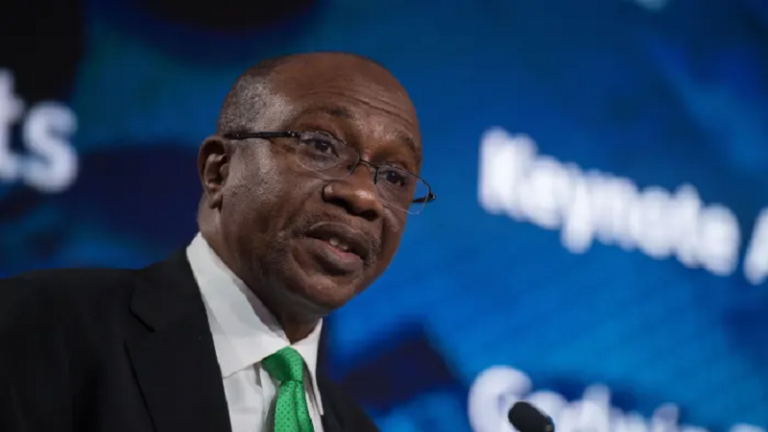
As Nigeria’s economy spirals quarter-on-quarter into deeper dismay, the Central Bank of Nigeria (CBN) has been trying many policies to stop the plunge. The CBN has granted operating licenses to 10 additional international money transfer operators (IMTOs) as part of efforts to boost diaspora remittances.
In March, the Apex bank introduced the ‘Naira 4 Dollar Scheme’ for diaspora remittances, which offers recipients of diaspora remittances through CBN’s International Money Transfer Operators, N5 for every $1 received as remittance inflow.
“In an effort to sustain the encouraging increase in inflows of diaspora remittances into the country, the Central Bank of Nigeria (CBN) hereby announces the introduction of the “CBN Naira 4 Dollar Scheme”, an incentive for senders and recipients of international Money Transfers,” a circular shared by the CBN said.
Register for Tekedia Mini-MBA edition 19 (Feb 9 – May 2, 2026): big discounts for early bird.
Tekedia AI in Business Masterclass opens registrations.
Join Tekedia Capital Syndicate and co-invest in great global startups.
Register for Tekedia AI Lab: From Technical Design to Deployment (next edition begins Jan 24 2026).
“Accordingly, all recipients of diaspora remittances through CBN licensed IMTOs shall henceforth be paid N5 for every USD1 received as remittance inflow,” it added.
The move was geared towards taking pressure off the naira by boosting dollar liquidity in Nigeria as most of the diaspora remittances shifted to cryptocurrency channels, compounding the country’s forex instability. It’s a two-month trial that will end next month but may be extended if successful.
Well over a month after the scheme started, it is yet to effect significant change in Nigeria’s economy. And now, the CBN governor Godwin Emefiele wants to expand the number of IMTOs in the country in the hope of achieving its aim as the trial deadline nears.
He said if the country could have inflows of about $10 billion to $15 billion, it would have a significant effect on the economy amidst the current fiscal constraints.

The newly-licensed operators are Transfercorp Limited/VFD Group; Comot Trading Nigeria Limited; Direkt Wire UK Limited; Gabtrans UK Limited in partnership with Moneyto Limited; GDM Transfer PTY Limited; Innovate 1 Pay Limited; Paysend Plc; SANAA Capital LLC (Money4 Diaspora Services LLC); Swift Payment Limited and WI-PAY Global LLC.
The new additions bring the total number of IMTOs in Nigeria to 57, as the CBN restricts all diaspora remittances to deposit money banks rather than mortgage or fintech institutions.
This move is to accommodate anticipated wider dollar inflow to Nigeria, even though there is no sign diaspora remittance is breaking away from the shackles of cryptocurrency. Although cryptocurrency trading volume has declined in the first quarter of the year compared to the last quarter of 2020 when it hit a record $400 million, there has been a surge in peer-to-peer (P2P) trade volumes.
Recent data from UsefulTulips shows that Nigeria still dominates the African cryptocurrency market, despite the central bank’s ban that forced dealers to P2P late last year. Nigeria’s P2P bitcoin traded volumes in the past 90 days surged to nearly $100 million, indicating that the central bank has been defied by still a huge number of diasporans who have chosen cryptocurrency as their means of remittance.
The CBN is counting on the diaspora remittance to stabilize cashflow as government’s revenue generation plunges further.
Emefiele said the remittances would help to curb the strains of COVID-19 just as in other countries like Pakistan and Indonesia.
“Since I became the CBN governor, I have been hearing about the size of diaspora remittances; some say $20 billion, in fact some say it’s about $30 billion. Honestly, I have been looking for the $30 billion or $20 billion, I have not seen it.
“But this time, I have decided that I will focus to see those billions of dollars. You know what, I am not only expecting $20 billion, if we get even up to $10 billion to $15 billion, I can tell you it can help the Nigerian economy.
“Pakistan, Indonesia and others generate an average of $2 billion monthly in diaspora remittances and this has helped to reduce the impact of COVID-19 on their economy,” he said.
While these targeted efforts are feasible, market frictions driving cryptocurrency surge are still at large, expanding its scope of authority to stymie CBN’s moves. Cross-border bureaucratic bottlenecks and intermediary costs of making remittances through regulated traditional financial institutions, are inadvertently pushing increasing crowd of people to cryptocurrency.
This was acknowledged by the Association of Bureau De Change Operators of Nigeria (ABCON), which stated that cryptocurrency transactions have an edge over the counter-remittance measures being introduced by the CBN.
“These exchanges override the political complications of official channels. The global reach of cryptocurrencies avoids the inflation risk inherent to official currencies, especially in politically unstable countries reliant on fickle foreign investors,” ABCON said.
With this trajectory, the CBN will need more than the ‘Naira 4 Dollar Scheme’ to save the naira from the oppression of cryptocurrency.




I think Nigeria monetary authority needs a crypto innovative initiative.